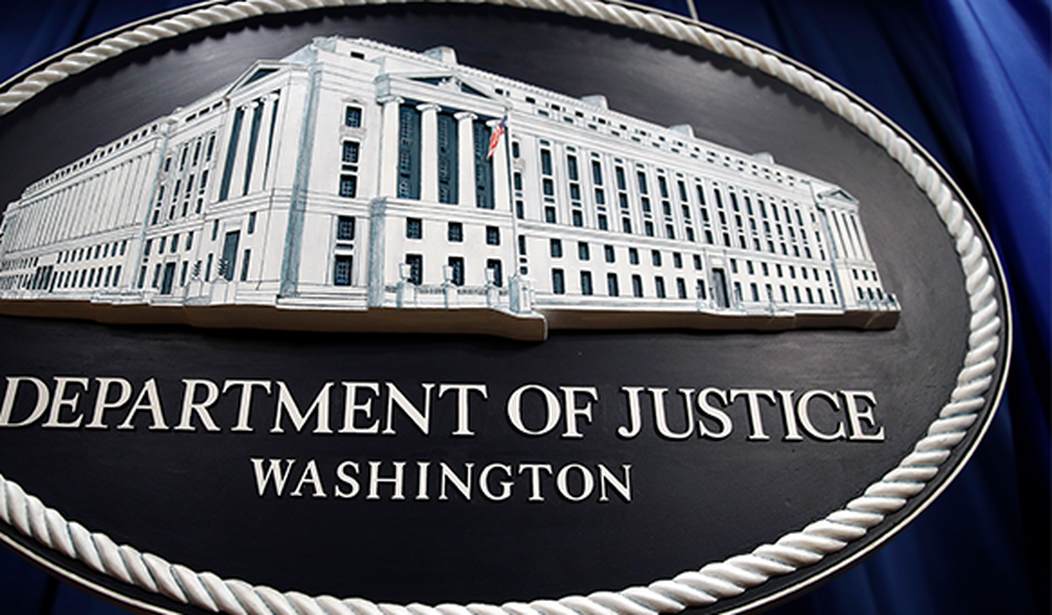The Department of Justice sided with college students reprimanded for promoting free speech by slamming Jones County Junior College’s “Orwellian,” “draconian,” and “unconstitutional” treatment of them in a Statement of Interest filed on Monday. The DOJ made explicitly clear that public colleges cannot “trample” on their students’ First Amendment rights.
In a news release from the DOJ announcing the Statement of Interest filing, Assistant Attorney General Eric Dreiband for the Civil Rights Division clearly stated, “Repressive speech codes are the indecent hallmark of despotic, totalitarian regimes. They have absolutely no place in our country, and the First Amendment outlaws all tyrannical policies, practices, and acts that abridge the freedom of speech.”
The DOJ filed the Statement of Interest in a federal civil lawsuit in Mississippi, pursuant to 28 U.S.C. § 517. The federal code authorizes the Attorney General to send his officers “to any…district in the United States to attend to the interests of the United States in a suit pending in a court of the United States.” According to the filing, the DOJ intervened in the civil suit because the United States has a strong interest in “ensuring that the First Amendment freedoms to speak and assemble are recognized by public institutions of higher education.”
Initially filed in September by J. Michael Brown and libertarian student activist group Young Americans for Liberty, the lawsuit alleges JCJC’s Student Handbook, practices, and policies violate students’ First Amendment rights. More specifically, the suit details JCJC’s multiple attempts to censor Brown and YAL.
Recommended
The first incident allegedly occurred when Brown and a YAL activist were speaking to students about free speech in February. While engaging with them, they allowed students to write messages of their choice on a YAL “free speech” beach ball.
A JCJC staff person approached the two and asked if they had obtained prior permission to engage in “expressive activity.” They had not. JCJC staff informed Brown that he wasn’t allowed on campus with the free speech ball until he filed the appropriate paperwork and received administrative approval.
Instead of letting Brown and the YAL activist go, JCJC staff called campus police. The campus police chief ordered them into his office where he reprimanded them for their “expressive behavior,” and allegedly threatened to arrest the YAL activist.
Less than two months later, Brown, his girlfriend, and another YAL activist engaged with other students about marijuana legalization and handed out pocket-sized versions of the United States Constitution. A JCJC official asked Brown if he was the same person who had previously been on campus with a beach ball. When Brown said yes, the official called campus police.
The officer allegedly told Brown, his girlfriend, and the YAL activist that their expressive activity was “illegal” and demanded their names, phone numbers, addresses, and student identification numbers. Shortly after that, the campus police chief arrived and once again allegedly threatened to arrest the activist accompanying Brown.
After being intimidated and distressed by JCJC staff and campus police, Brown stopped using his First Amendment rights on campus for fear of “disciplinary action, removal from campus, or arrest.” Subsequently, Brown and YAL filed suit against JCJC.
Standing in solidarity with the students of JCJC and public colleges everywhere, U.S. Secretary of Education Betsy DeVos said, “This administration won’t let students be silenced. We stand with their right to speak and with their right to learn truth through the free exchange of ideas – particularly those with which they might disagree.”
JCJC filed a Motion to Dismiss Brown’s lawsuit for lack of standing and appreciable damages. The DOJ stated that regardless of if the case proceeds, JCJC “has a freestanding obligation to comply with the First Amendment.”
The DOJ’s Statement of Interest concluded with a not-so-subtle piece of advice; “JCJC need not— and should not— wait for a court with jurisdiction to steamroll it into compliance. It should comply voluntarily with the First Amendment, and—and soon.”
YAL President Cliff Maloney praised the DOJ’s action by saying, “The Response from the Department of Justice and Education should be an encouraging sign for defenders of free speech – a sign that the American people’s patience with censorship on college campuses is running thin. The only permission slip anyone should need to speak on campus is the First Amendment to the U.S. Constitution.”

























Join the conversation as a VIP Member